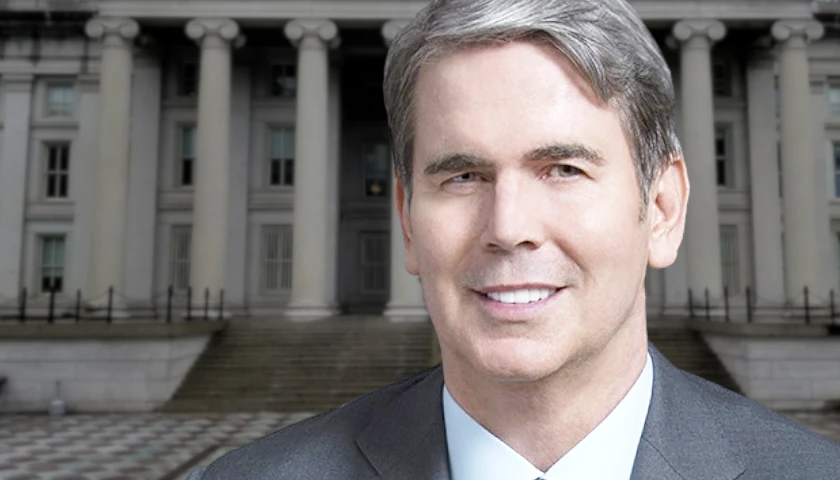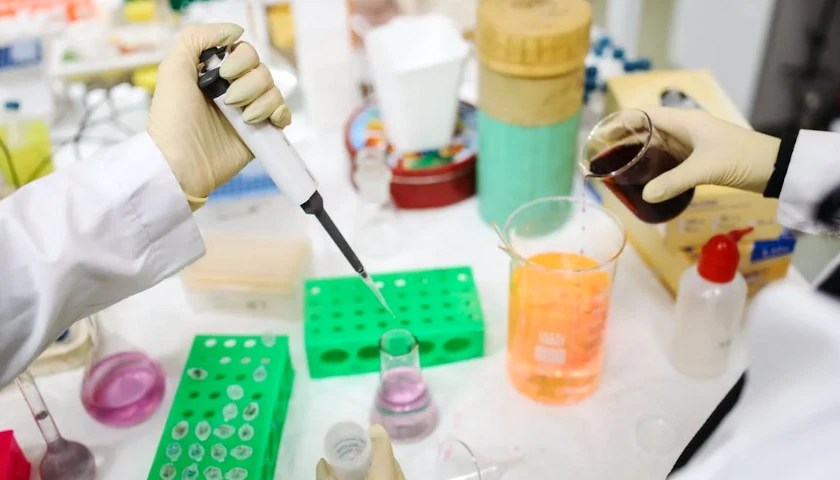by Debra Heine
The Florida Senate on Wednesday approved a bill that strips away Disney’s special self-governing status after the company publicly opposed a parental rights bill that was signed into law by Governor Ron DeSantis late last month.
Disney released a scathing statement after the so-called “Don’t Say Gay” bill was officially signed into law.
“Florida’s HB 1557, also known as the ‘Don’t Say Gay’ bill, should never have passed and should never have been signed into law,” the company said on March 28. “Our goal as a company is for this law to be repealed by the legislature or struck down in the courts, and we remain committed to supporting the national and state organizations working to achieve that. We are dedicated to standing up for the rights and safety of LGBTQ+ members of the Disney family, as well as the LGBTQ+ community in Florida and across the country.”
The popular Republican governor announced on Tuesday that he was calling on the state legislature to end the special protections that were given to Disney’s Florida operations 50 years ago.
During a press conference, DeSantis also called on Republican lawmakers to consider a congressional map that creates four new GOP-leaning districts.
“I am announcing today that we are expanding the call of what they are going to be considering,” DeSantis continued. “Yes, they will be considering the congressional map but they also will be considering termination of all special districts that were enacted in Florida prior to 1968, and that includes the Reedy Creek Improvement District.”
“What I would say as a matter of the first principle is I don’t support special privileges in law just because a company is powerful and they’ve been able to wield a lot of power,” DeSantis said.
“I think what has happened is there’s a lot of these special privileges that are not justifiable, but because Disney had held so much sway, they were able to sustain a lot of special treatment over the years,” he added.
Gov. DeSantis wants to hold Twitter's board and directors accountable for potentially injuring Florida's pension fund. pic.twitter.com/qnulOBbiM4
— Apex World News (@apexworldnews) April 19, 2022
The Republican controlled chamber passed the bill, by a margin of 23–16, that would dissolve special status granted to the company that essentially allows Disney to self-govern on its large property near Orlando.
The special status, known as The Reedy Creek Improvement Act, was signed into law in May 1967 by Gov. Claude Kirk in response to lobbying efforts by Disney. The entertainment giant proposed building a recreation-oriented development on 25,000 acres of property in a remote area of Central Florida’s Orange and Osceola counties, which consisted of 38.5 square miles of largely uninhabited pasture and swampland.
Orange and Osceola County did not have the services or resources needed to bring the project to life, so the state legislature worked with Disney to establish the Reedy Creek Improvement District, a special taxing district that allows the company to act with the same authority and responsibility as a county government.
DeSantis Press Secretary Christina Pushaw stressed that the legislation was not “retaliatory” in a statement to Fox News.
“It was unfortunate that Disney decided to wade into a political debate and attempt to overturn a common-sense law, enacted by a duly elected legislature and signed by a duly elected governor, with the support of the vast majority of Floridians,” Pushaw said. “In fact, it was Disney that ‘retaliated’ by publicly vowing to ‘repeal’ or have the law ‘struck down.’”
In another bold move Wednesday, the Florida Department of Health, led by Surgeon General Joseph Ladapo, released its own guidelines for the treatment of gender dysphoria for children and teenagers, defying the Biden Administration’s guidance.
The state’s guidance advises against gender-affirming treatment for people under the age of 18, including surgery as well as the prescription of hormone therapy or puberty blockers, which suppress the release of testosterone or estrogen. Florida’s updated guidance also said social transition — things like using a different name, pronouns or style of dress — should not be a treatment option. Gender dysphoria is the stress an individual feels when their gender identity does not match the sex they were assigned at birth.
I’m a licensed physician in Florida. I got this amazing notice today from the Florida Health Department. They sent it to all doctors. pic.twitter.com/VP6qpM8Leg
— Grazie Pozo Christie, M.D. (@GChristiemd) April 20, 2022
The entire Treatment of Gender Dysphoria for Children and Adolescents guidance can be read below:
The Florida Department of Health wants to clarify evidence recently cited on a fact sheet released by
the US Department of Health and Human Services and provide guidance on treating gender dysphoria
for children and adolescents.
Systematic reviews on hormonal treatment for young people show a trend of low-quality evidence,
small sample sizes, and medium to high risk of bias. A paper published in the International Review of
Psychiatry states that 80% of those seeking clinical care will lose their desire to identify with the nonbirth sex. One review concludes that “hormonal treatments for transgender adolescents can achieve
their intended physical effects, but evidence regarding their psychosocial and cognitive impact is
generally lacking.”
According to the Merck Manual, “gender dysphoria is characterized by a strong, persistent crossgender identification associated with anxiety, depression, irritability, and often a wish to live as a gender
different from the one associated with the sex assigned at birth.”
Due to the lack of conclusive evidence, and the potential for long-term, irreversible effects, the
Department’s guidelines are as follows:
• Social gender transition should not be a treatment option for children or adolescents.
• Anyone under 18 should not be prescribed puberty blockers or hormone therapy.
• Gender reassignment surgery should not be a treatment option for children or adolescents.Based on the currently available evidence, “encouraging mastectomy, ovariectomy,
uterine extirpation, penile disablement, tracheal shave, the prescription of hormones
which are out of line with the genetic make-up of the child, or puberty blockers, are all
clinical practices which run an unacceptably high risk of doing harm.”
• Children and adolescents should be provided social support by peers and family and seek
counseling from a licensed provider.
These guidelines do not apply to procedures or treatments for children or adolescents born with a
genetically or biochemically verifiable disorder of sex development (DSD). These disorders include, but
are not limited to, 46, XX DSD; 46, XY DSD; sex chromosome DSDs; XX or XY sex reversal; and
ovotesticular disorder.
The Department’s guidelines are consistent with the federal Centers for Medicare and Medicaid
Services age requirement for surgical and non-surgical treatment. These guidelines are also in line with
the guidance, reviews, and recommendations from Sweden, Finland, the United Kingdom, and France.
Parents are encouraged to reach out to their child’s health care provider for more information.
– – –
Debra Heine reports for American Greatness.




